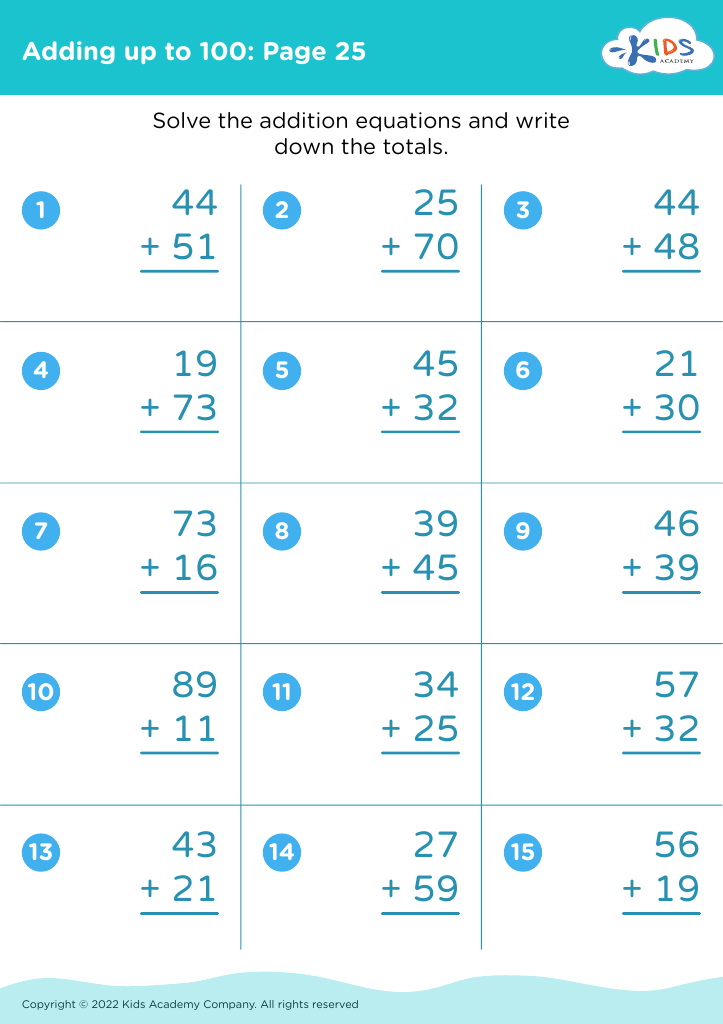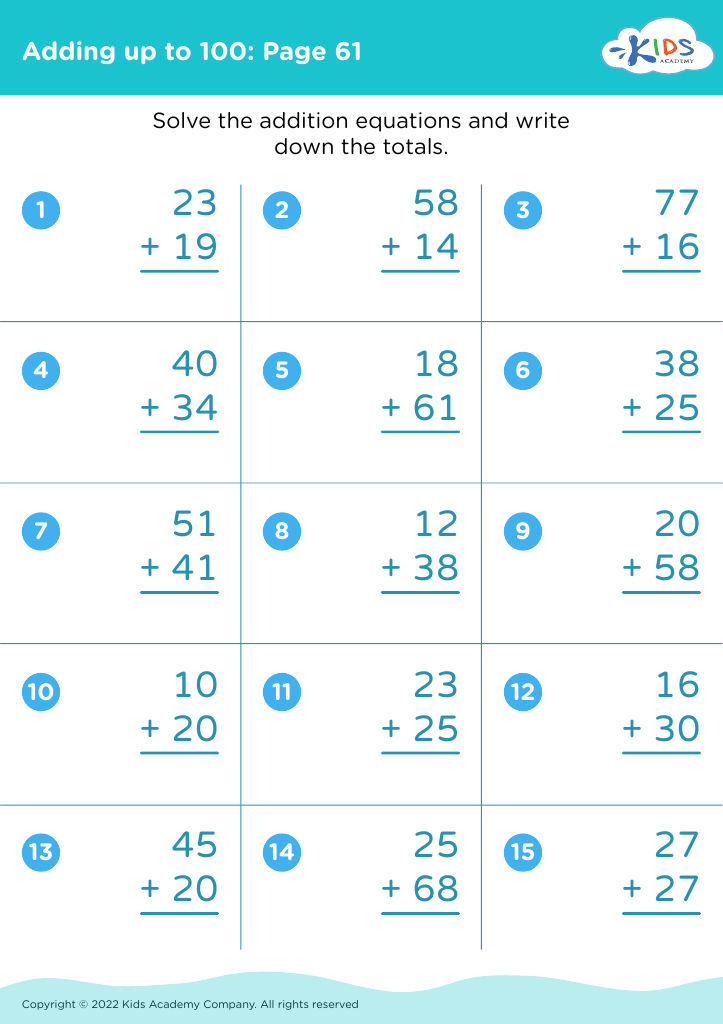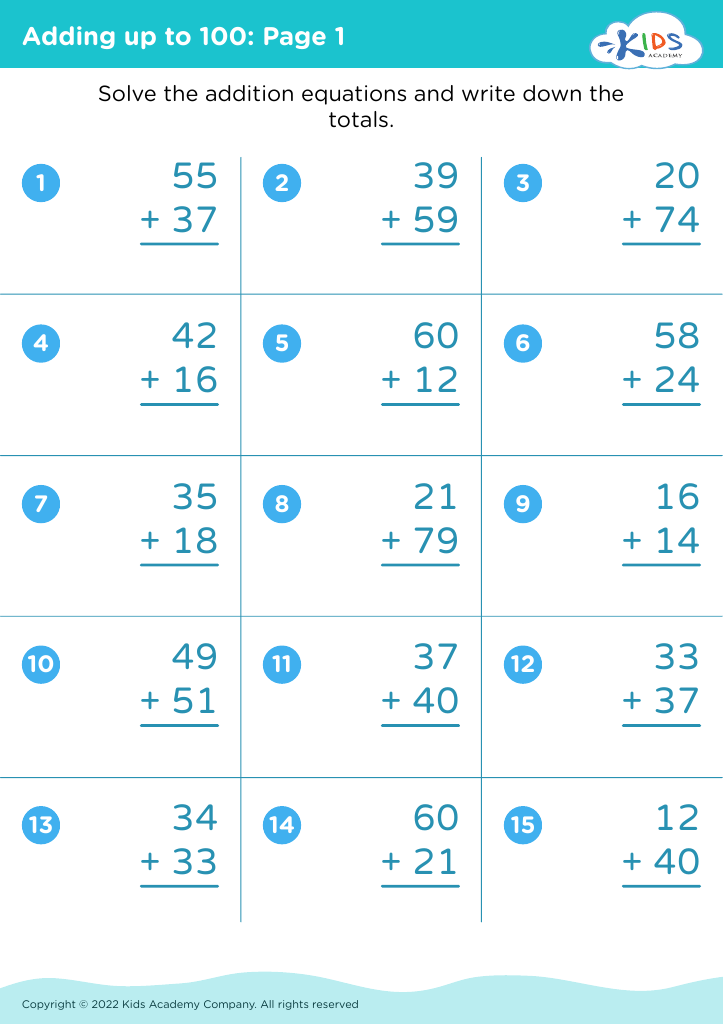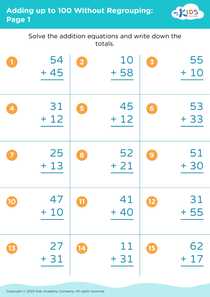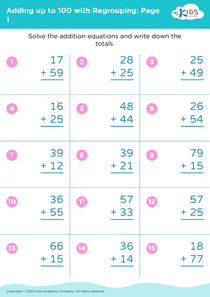Counting skills Adding up to 100 Misc Worksheets for Ages 5-7
7 filtered results
-
From - To
Explore our "Counting Skills: Adding Up to 100" worksheets designed specifically for children aged 5-7. These engaging and interactive printables support early learners in developing essential counting skills, providing a fun way to enhance their math proficiency. Featuring a variety of exercises that focus on adding up to 100, our worksheets encourage critical thinking and problem-solving while making learning enjoyable. Ideal for at-home practice or classroom activities, these resources will help children build confidence in their mathematical abilities. Visit our web page to access your free counting worksheets and watch your young mathematicians thrive!
Counting skills, particularly the ability to add up to 100, are foundational for children ages 5 to 7. These skills not only foster a child's mathematical understanding but also prepare them for everyday problem-solving and critical thinking tasks. Mastery of counting and addition serves as a building block for more complex math concepts like subtraction, multiplication, and division.
Parents and teachers should prioritize these skills because early numeracy impacts a child's confidence and attitude toward math. When children can confidently add up to 100, they build a sense of accomplishment that resonates in other learning areas. Additionally, strong counting abilities enhance cognitive skills such as memory and logical reasoning.
Moreover, counting in various contexts—like using physical objects, engaging in games, or even simple everyday situations, can reinforce learning and make it enjoyable. This experiential learning approach caters to diverse learning styles, fostering a love for numbers and analytical thinking in children.
Furthermore, by ensuring children are proficient in counting and addition, educators and parents equip them with the skills necessary for academic success and everyday life, laying a strong foundation for lifelong learning and financial literacy. Thus, cultivating these essential skills at an early age is invaluable.
